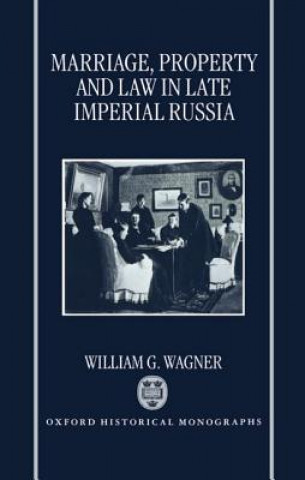
Kézbesítés
Vásárlási tanácsadó





Nem vált be? Semmi gond! Nálunk 30 napon belül visszaküldheti
 Ajándékutalvány
bármilyen értékben
Ajándékutalvány
bármilyen értékben
Ajándékutalvánnyal nem nyúlhat mellé. A megajándékozott az ajándékutalványért bármit választhat kínálatunkból.
Marriage, Property, and Law in Late Imperial Russia
 Angol
Angol
 648 b
648 b
30 nap a termék visszaküldésére
Ezt is ajánljuk


This is the first systematic study of civil law in late Imperial Russia. It shows that efforts to adjust family, property, and inheritance law to changing social and economic conditions often became intertwined with attempts to shape society in accordance with competing ideological ideals. Through a restructuring of the family's legal basis, members of the growing educated and professional strata of society in particular endeavoured to promote conflicting coneptions of authority, individuality, gender, and law. Legal reform also served for members of the emerging legal and medical professions as a way to establish their authority, often at the expense of the state administration and the Orthodox Chruch. Civil law in late Imperial Russia therefore constituted both an important medium for ideological redefinition and a field of battle for those seeking to reform, to overthrow, or to defend the ancien regime. Because this battle extended into the state bureaucracy, legislative change proved extremely difficult. Newly empowered by the 1864 judicial reform, the judiciar responded to legislative inaction by not merely adapting the law, but also by promoting an ideal of the family whose values and principles challenged those underlying the autocracy. Professor Wagner's detailed and scholarly analysis of these issues offers many important insights into cultural attitudes and political structures in late Imperial Russia.
Információ a könyvről
 Angol
Angol
Kategória




 Hogyan vásároljunk
Hogyan vásároljunk





















